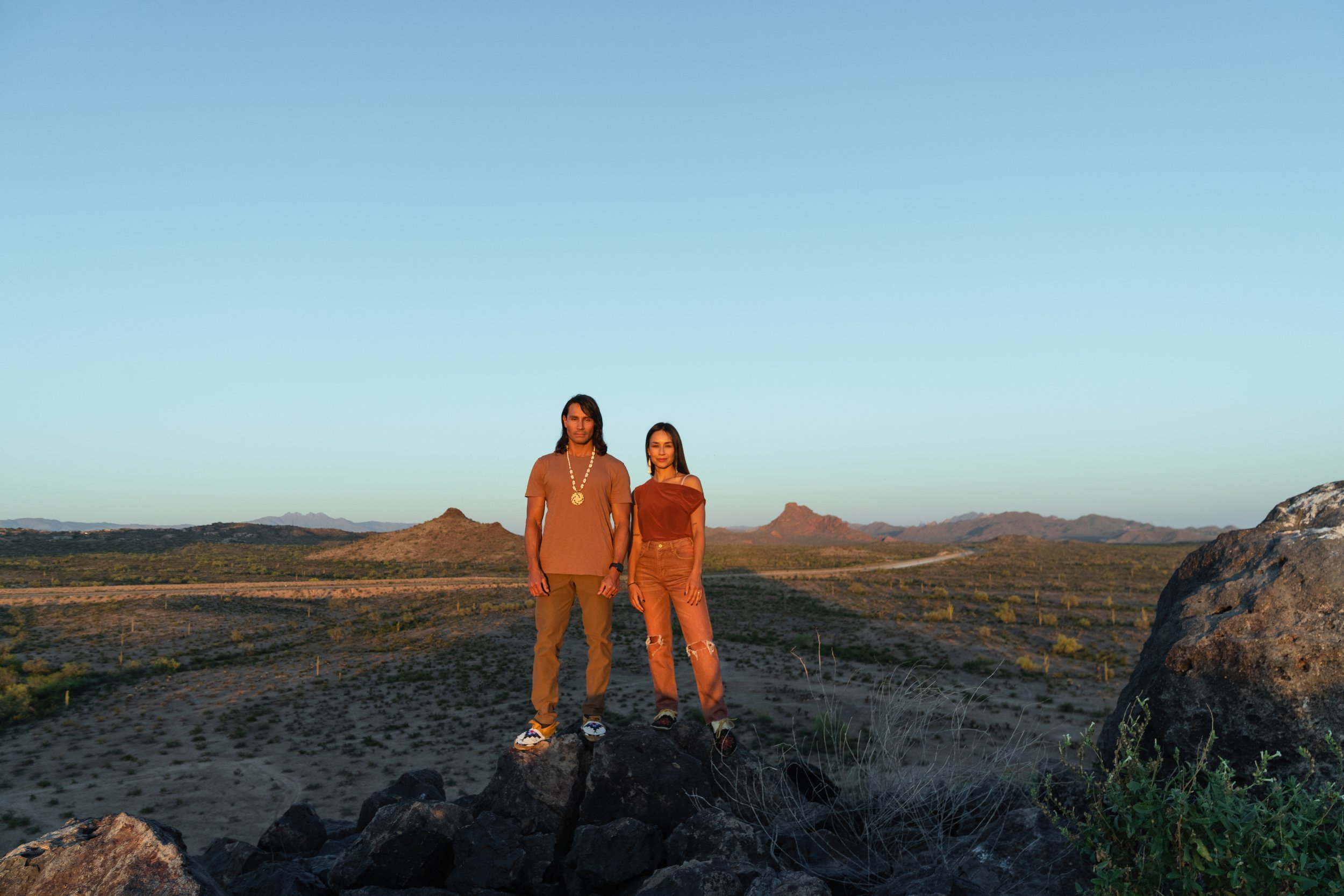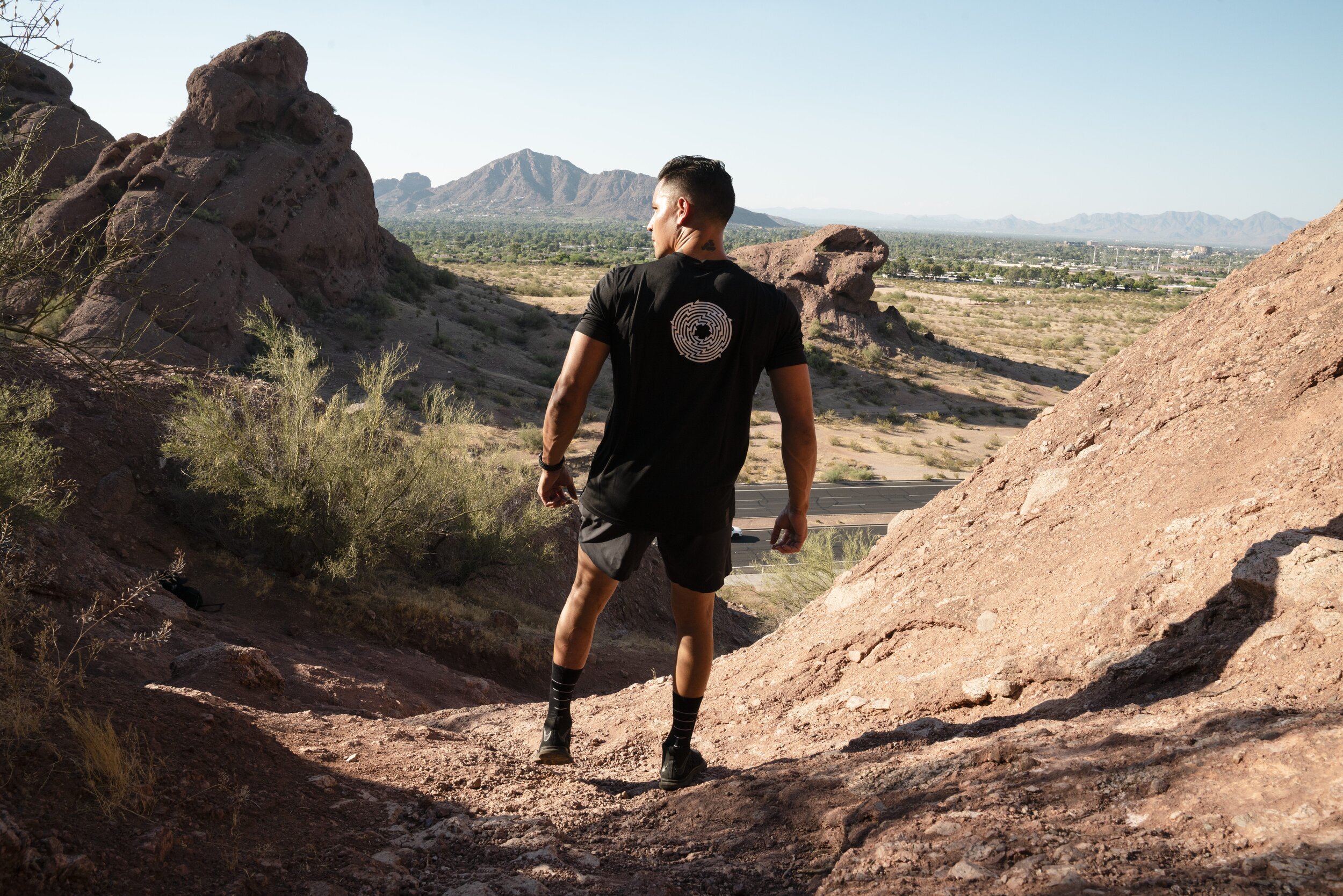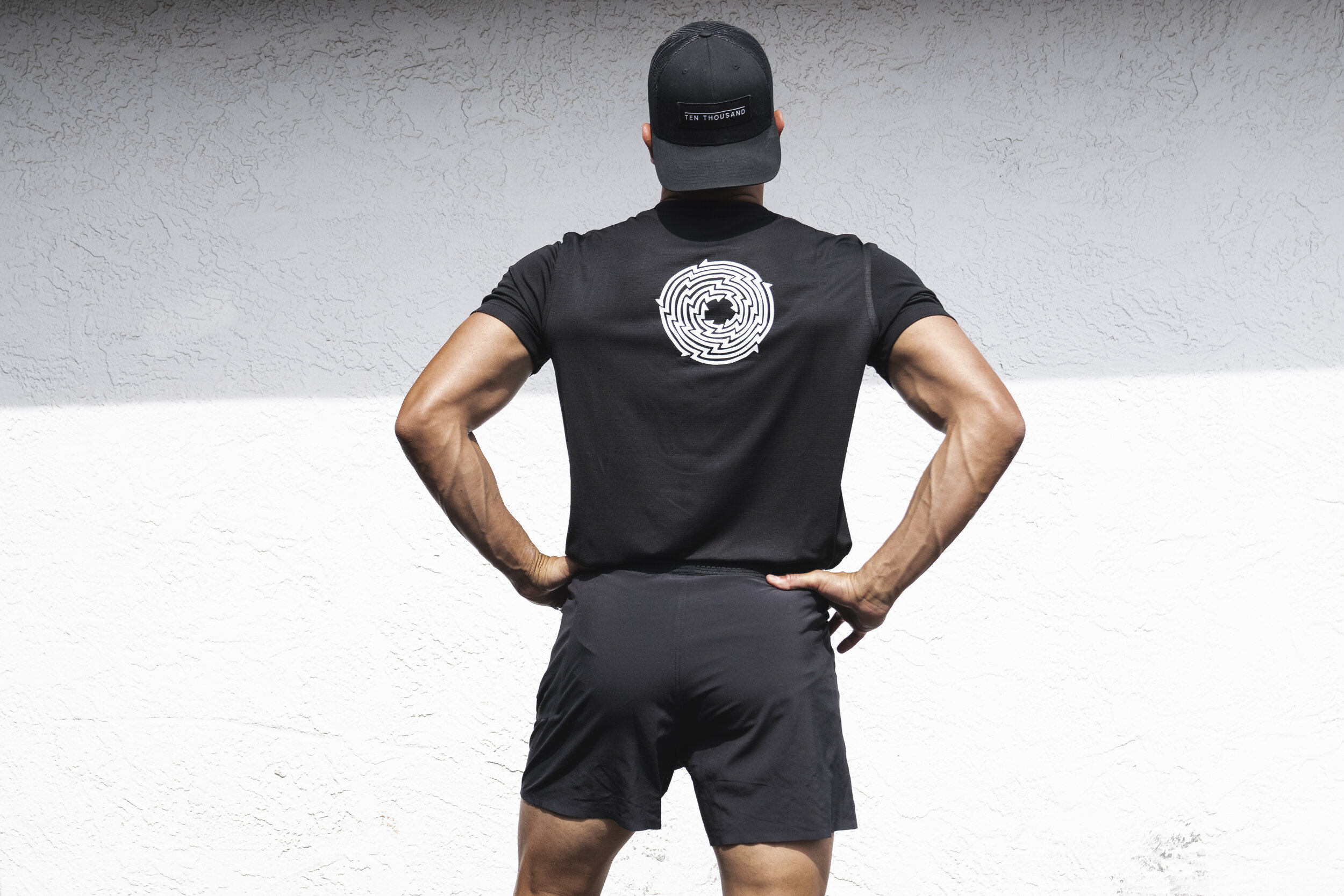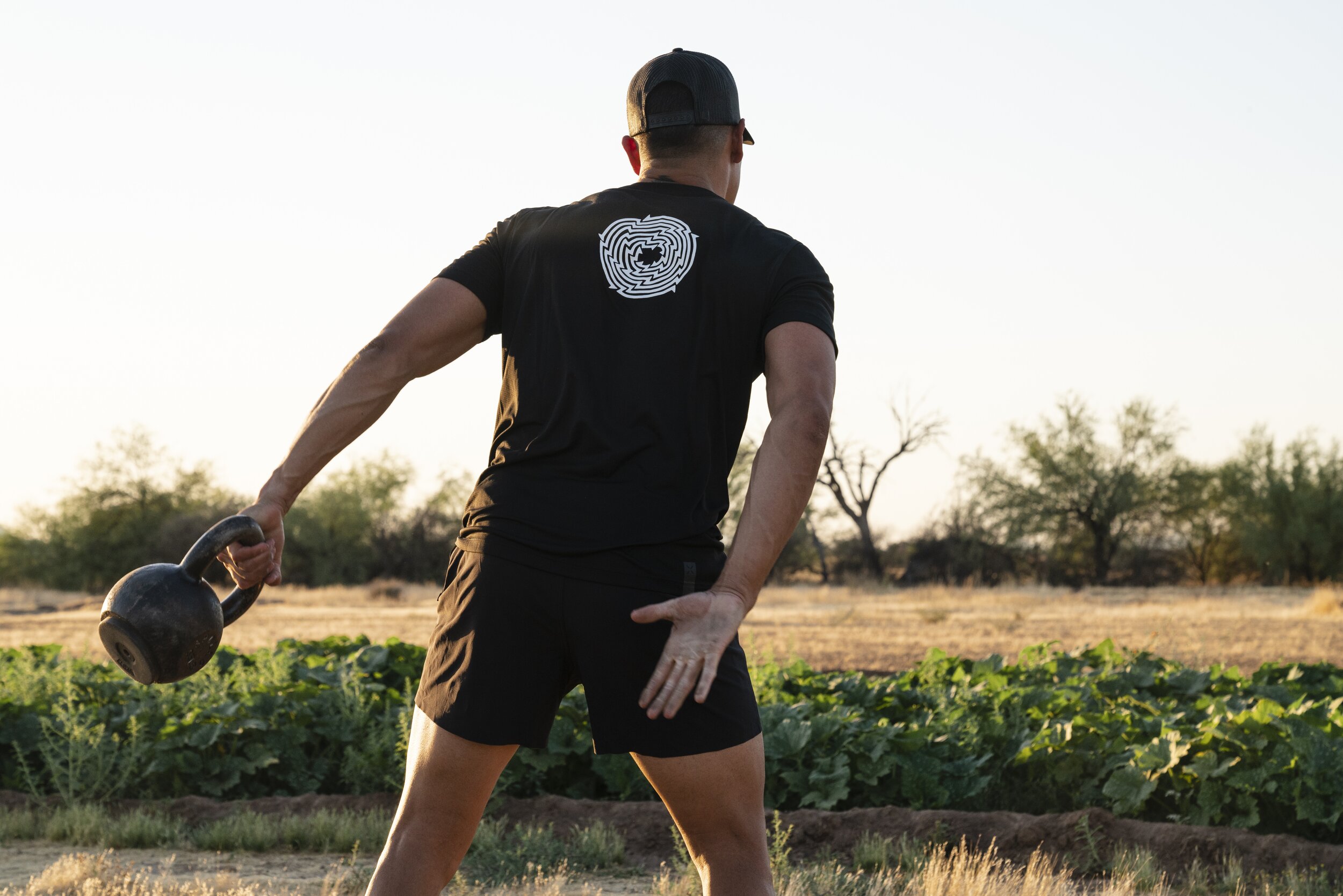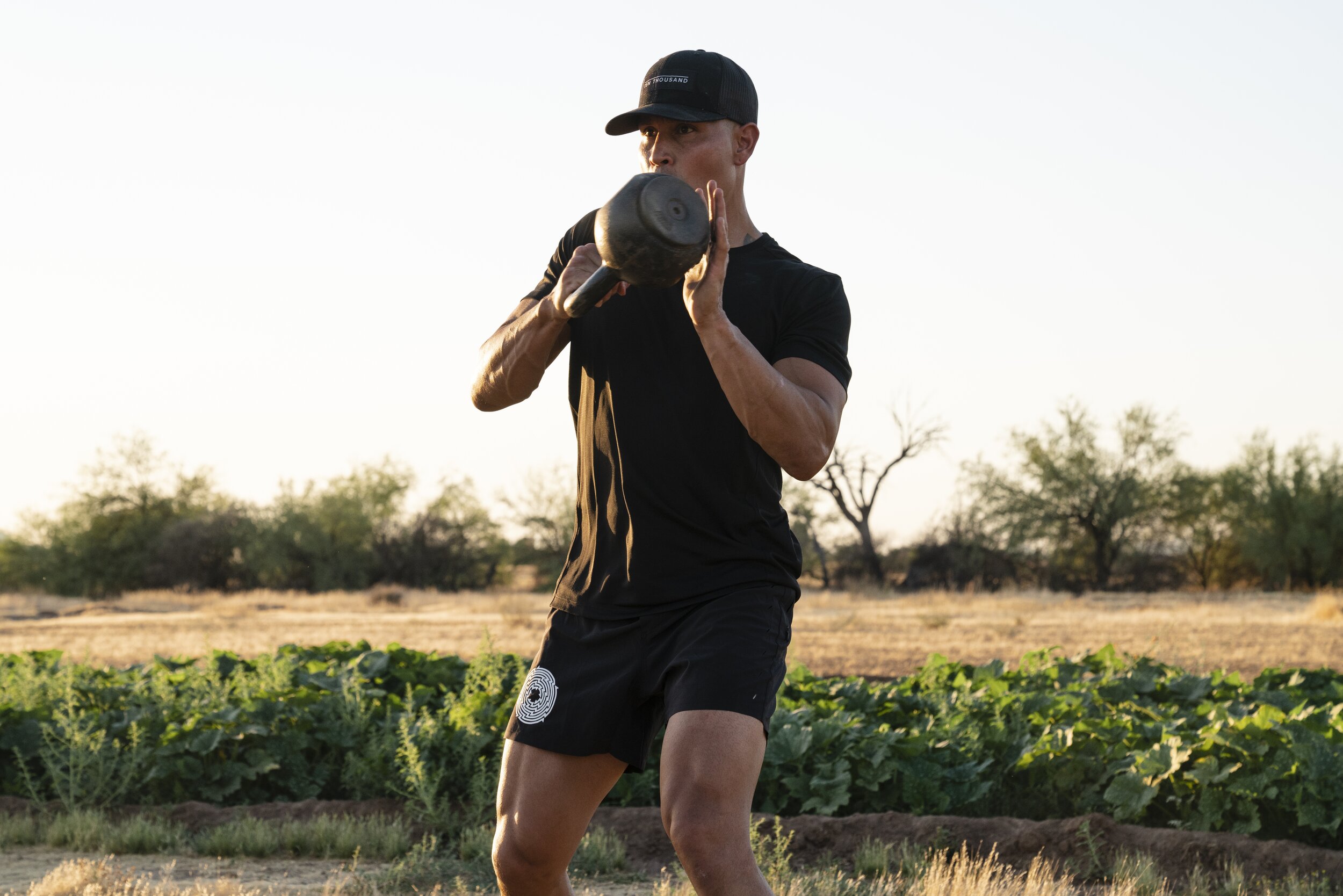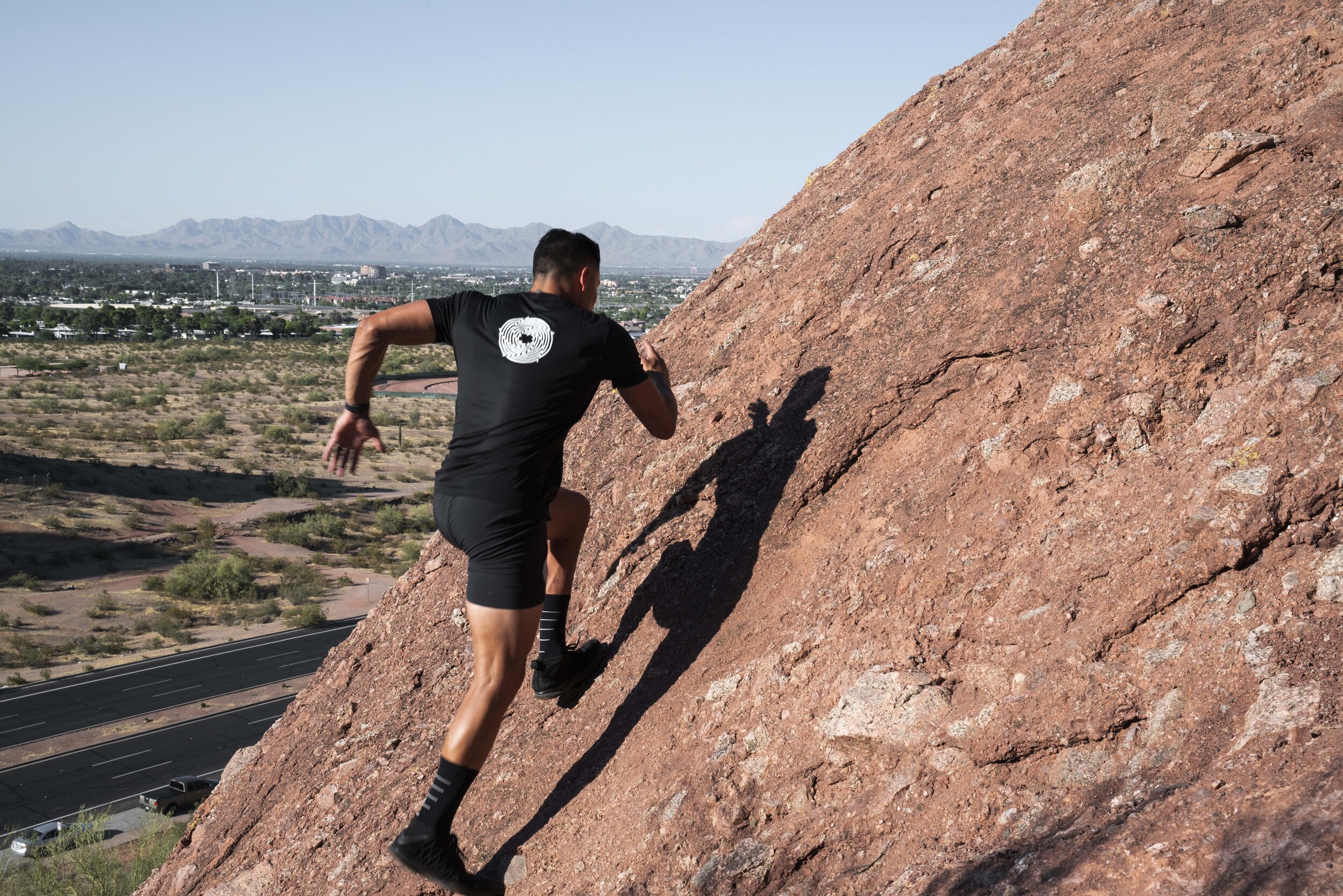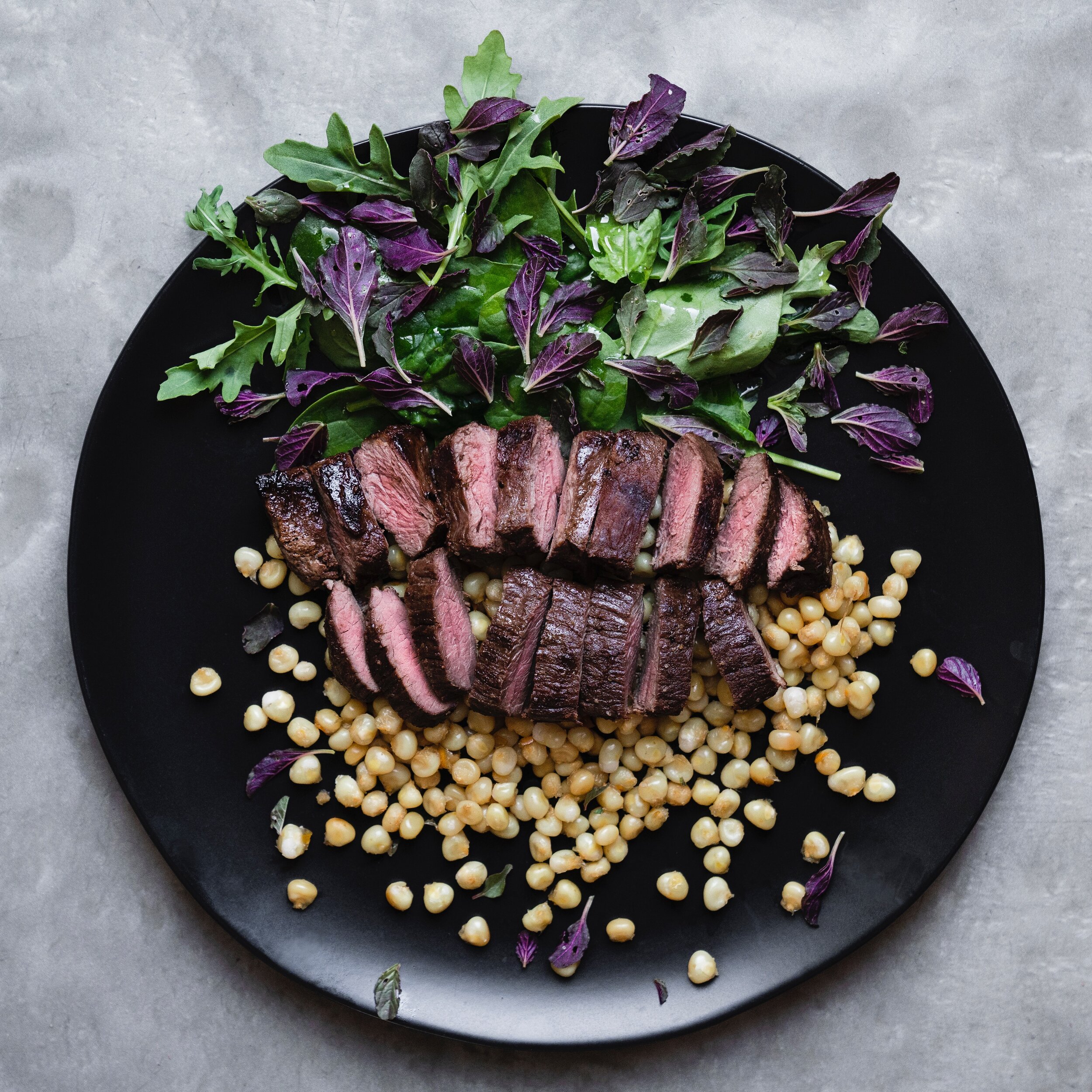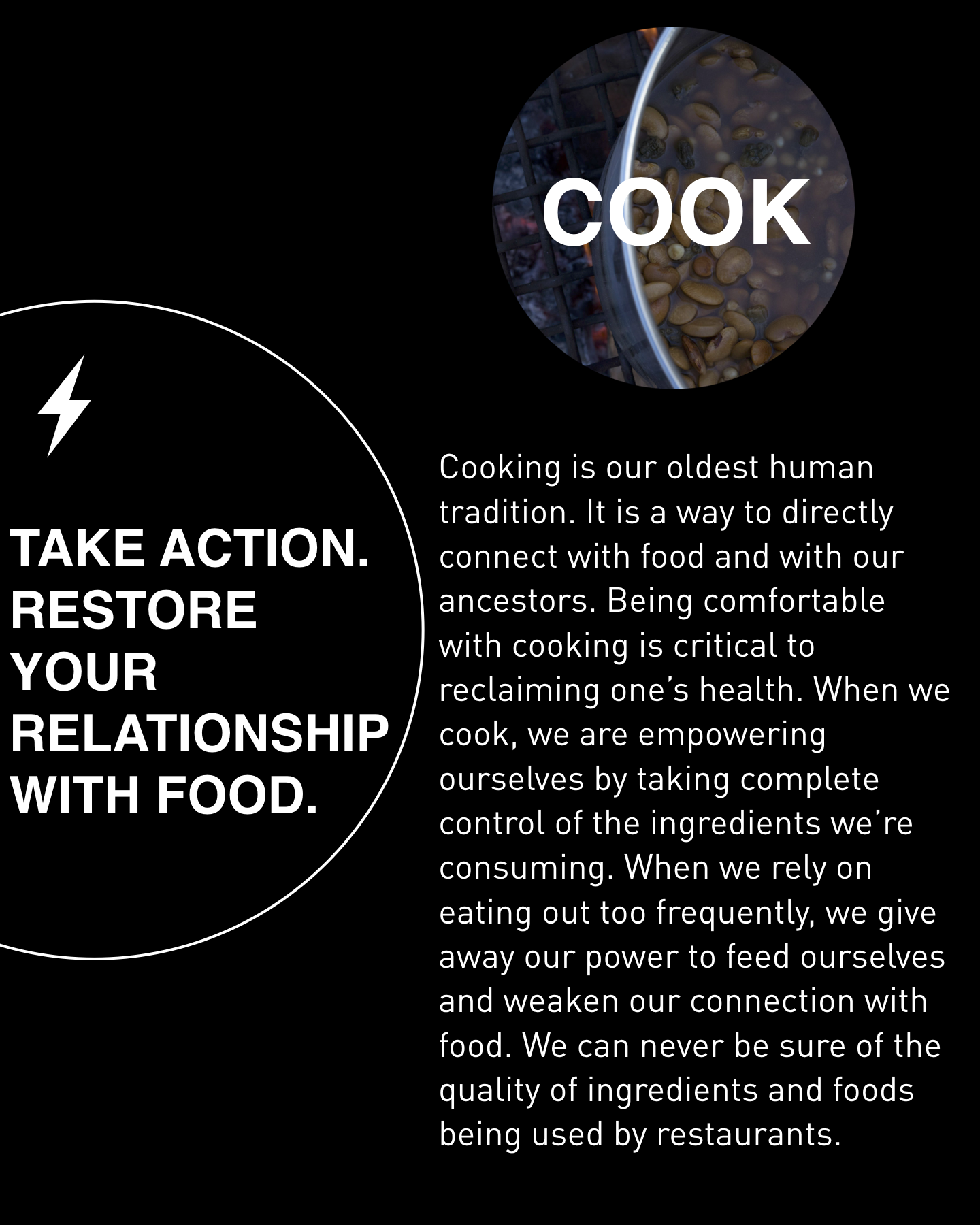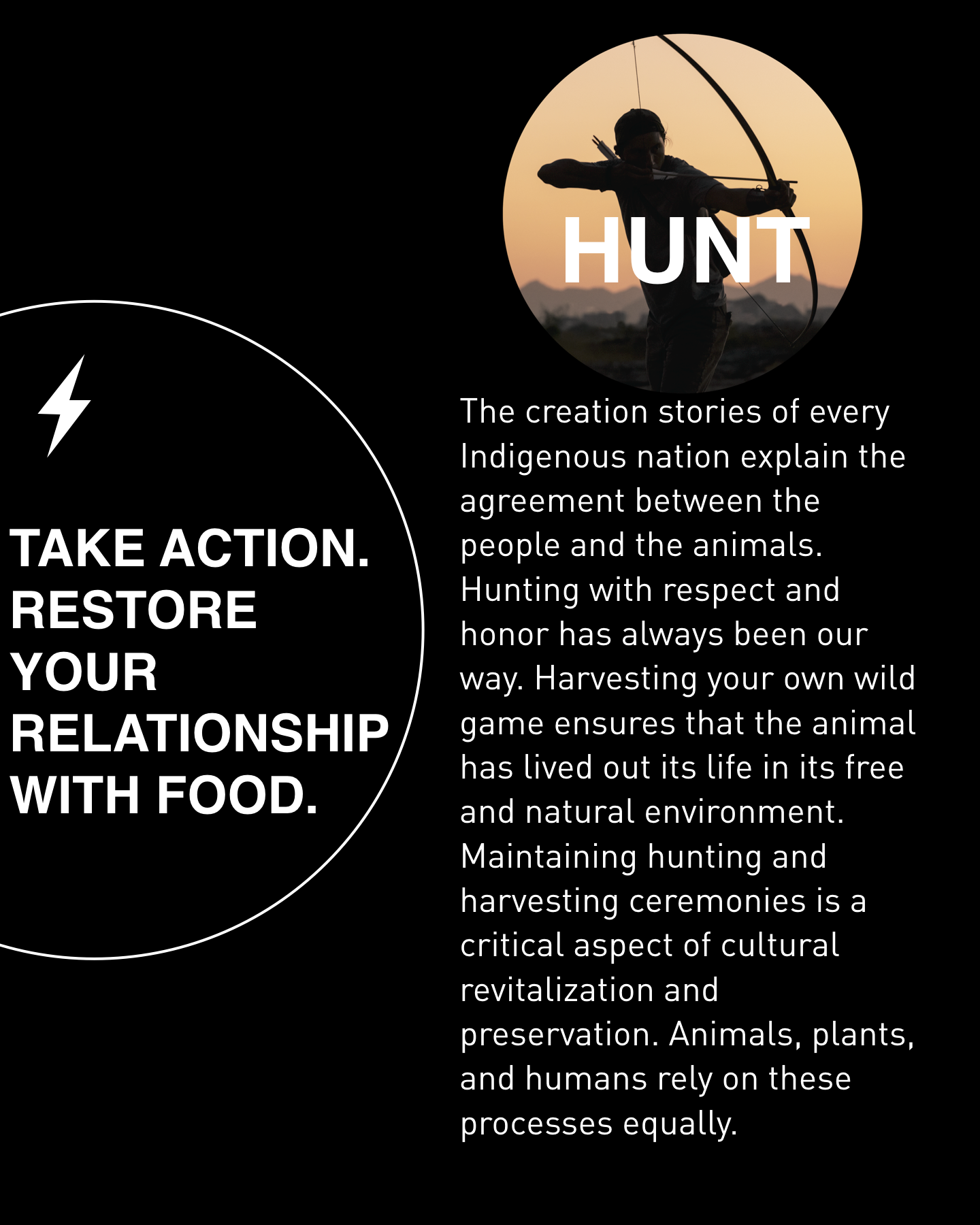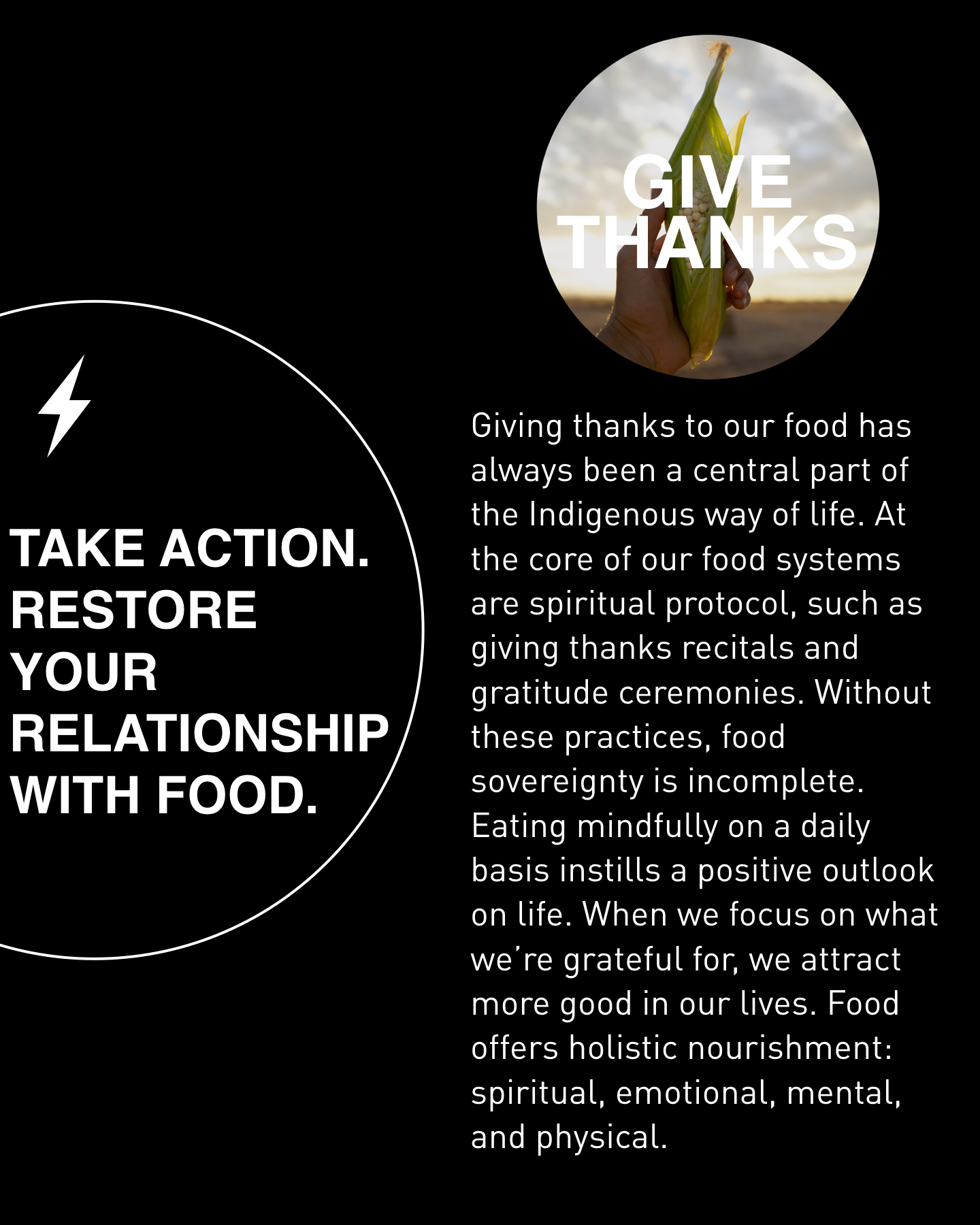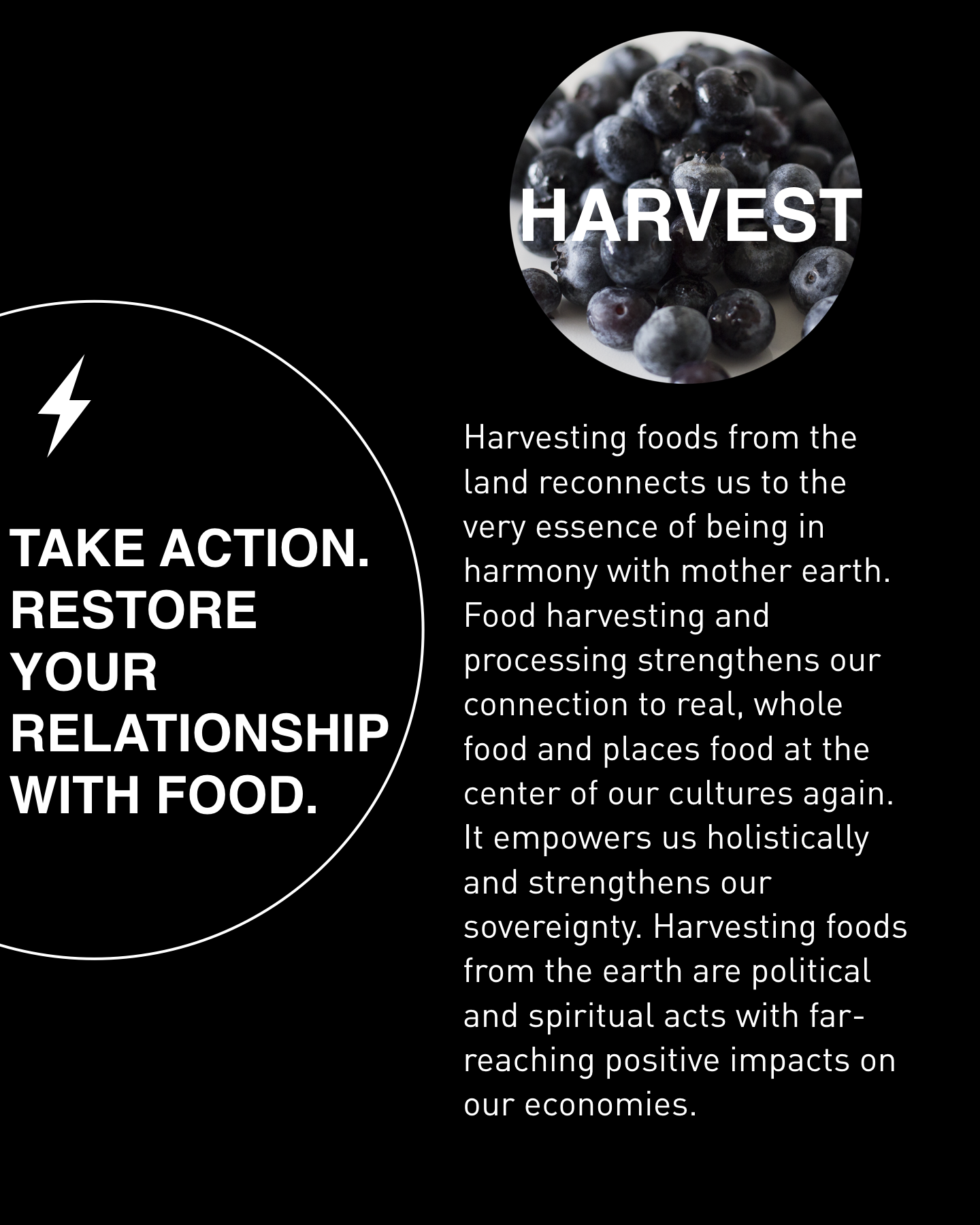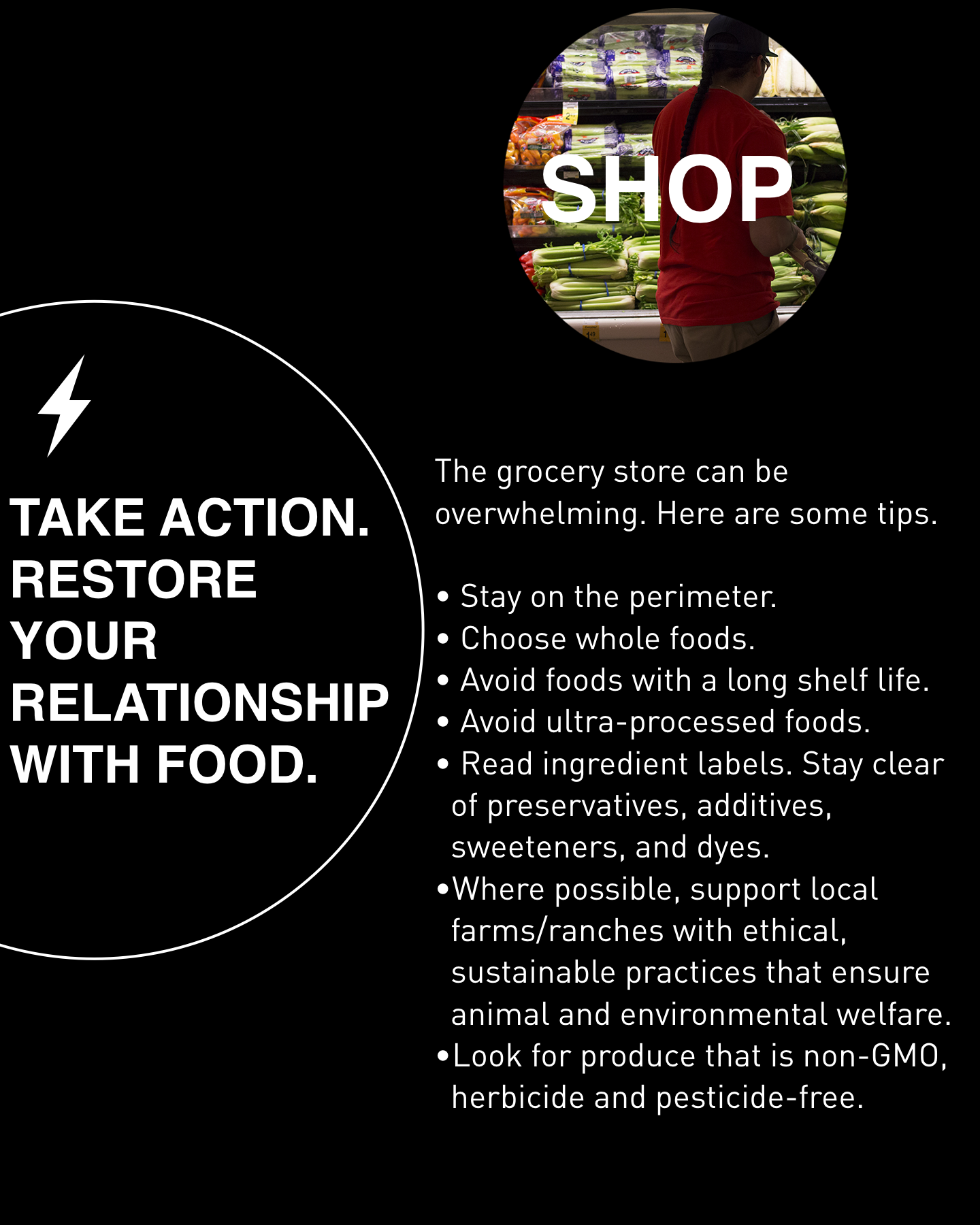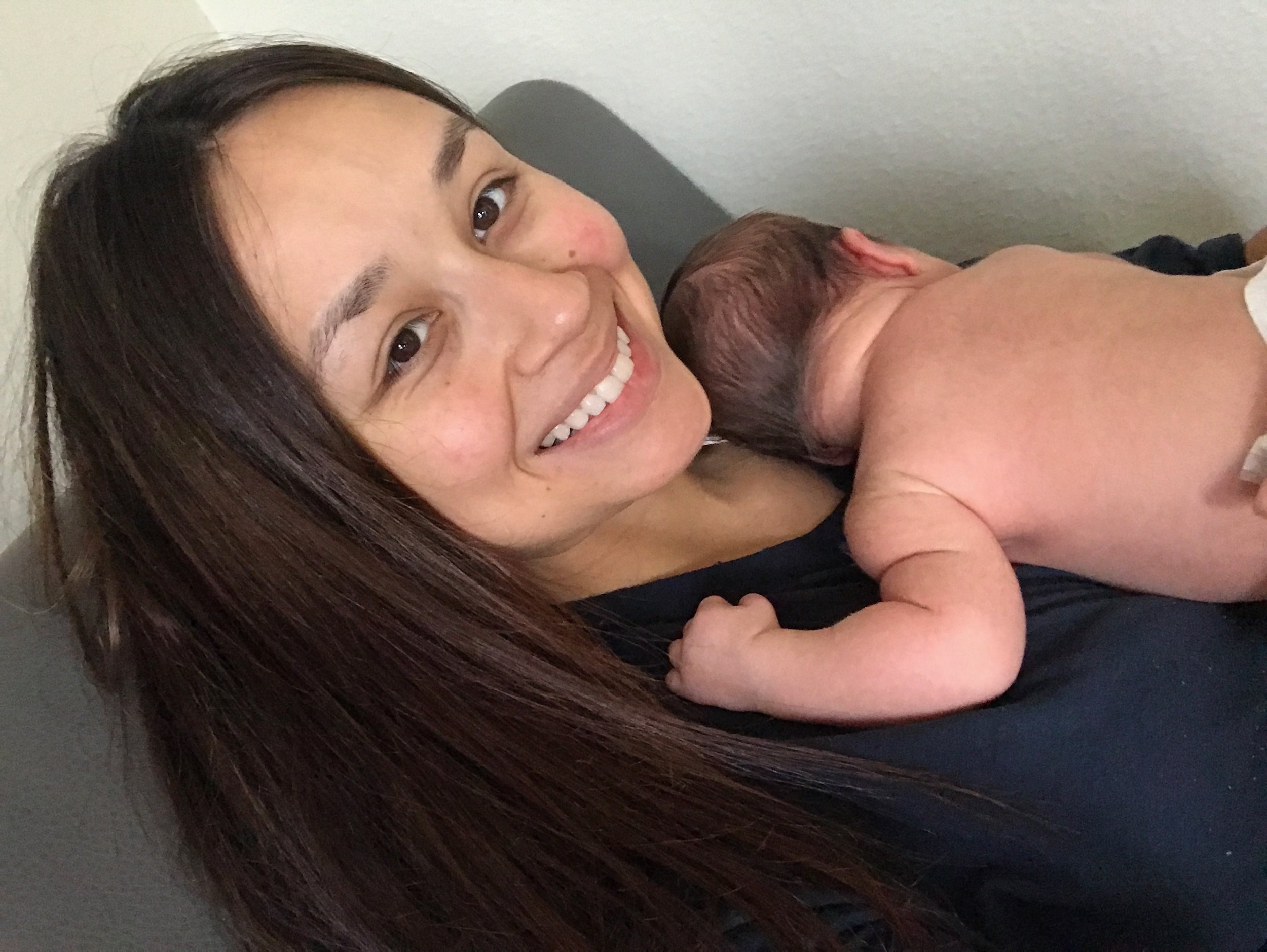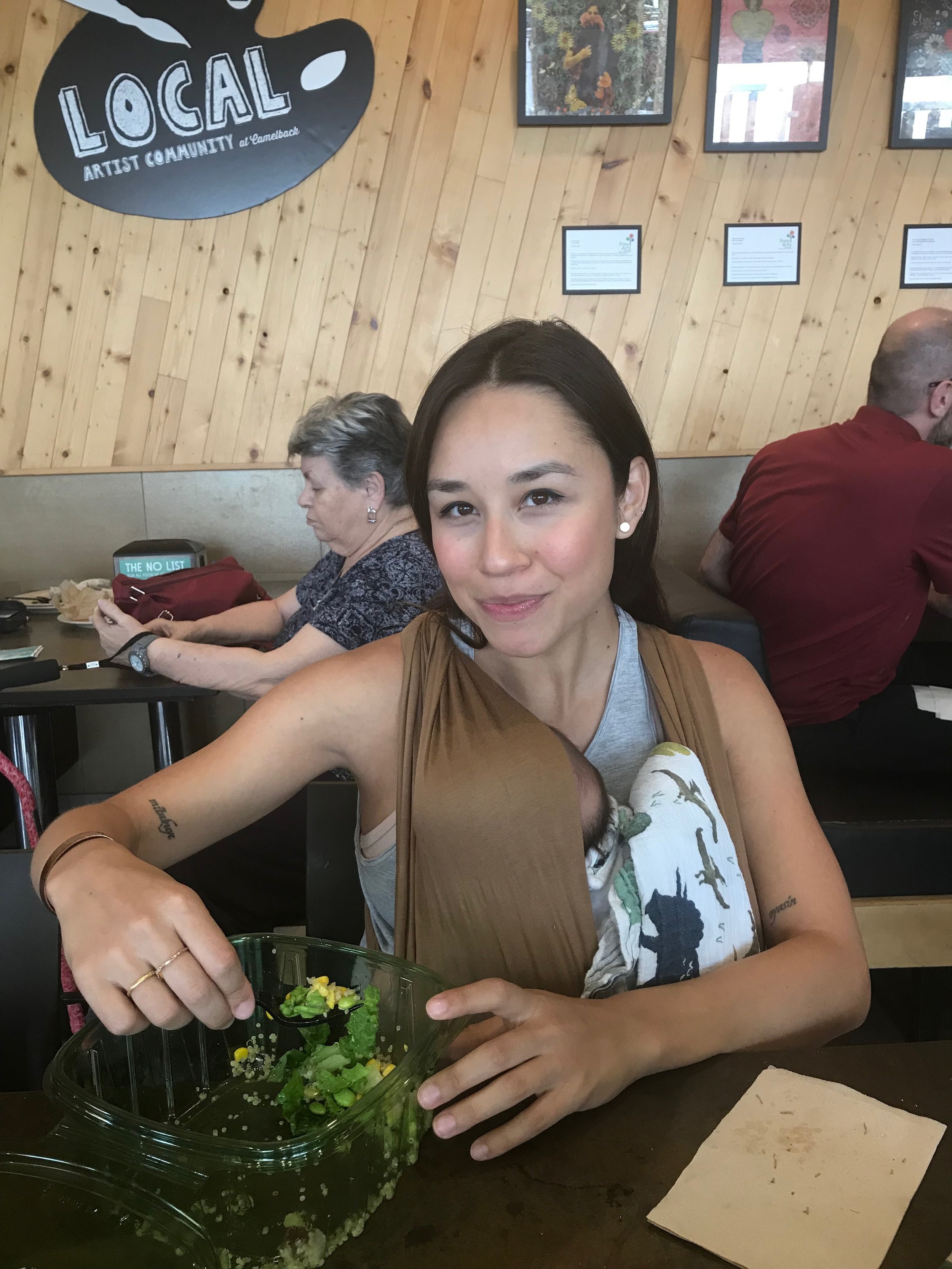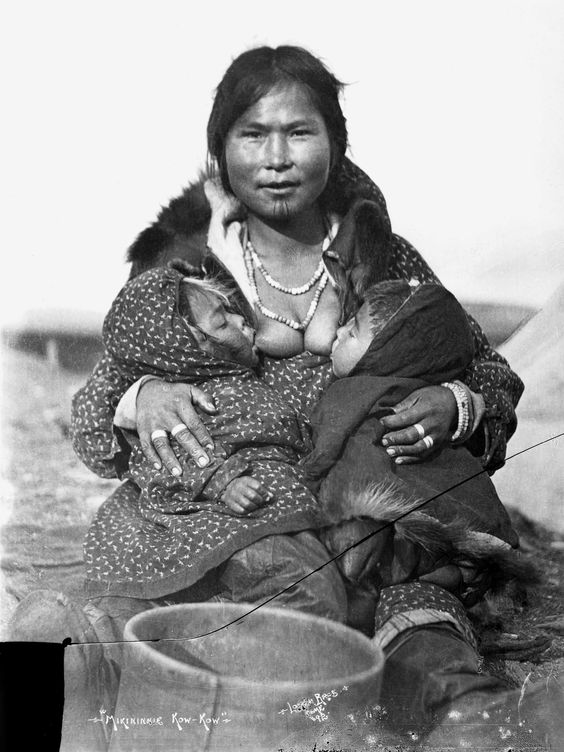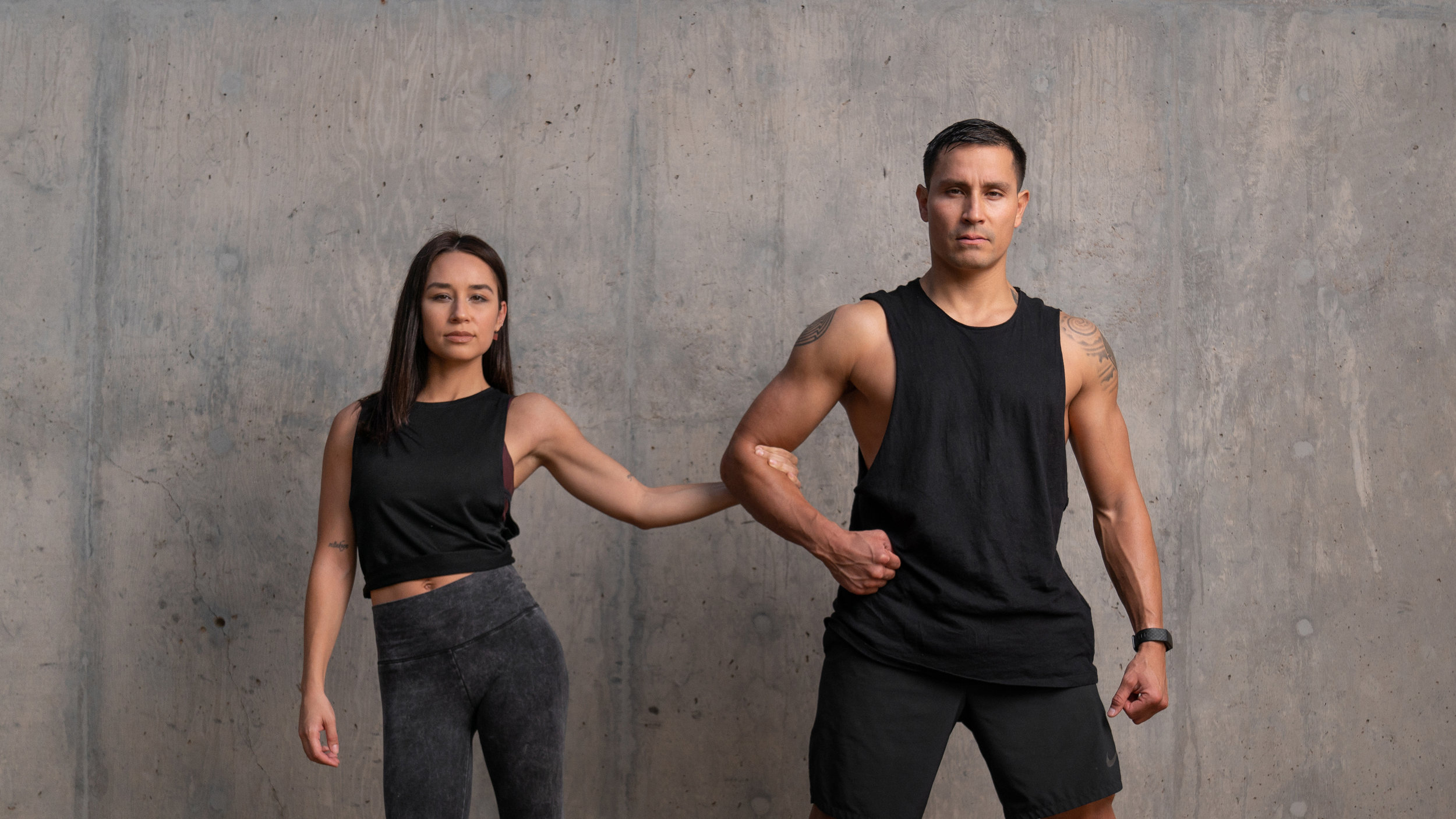Strawberry Morning
An essay about waking up in the morning on my tenth year of sobriety.
MAY 20, 2023
I’m not one to remember dates. I couldn’t even tell you my own wedding anniversary. But I do know that exactly ten years ago, I woke up to a pang of nausea so severe that it sent me running to the toilet in my tiny Bronx apartment. I barely made it. I fell to my knees and hurled violently. Puking made me cry. How pathetic. I rinsed my mouth out, careful not to make eye contact with the mirror. I crawled back into bed, still nauseous, still crying. Then shame settled in, as usual. I looked at my phone. Only 6am. It would be a whole day of this.
I resented the daylight that forced itself through the cracks in my blinds, refusing to let me sleep. Smashed sideways into my pillow, one open eye looked at the black and white photo of my grandparents on my nightstand. Such noble people. Such a contrast. I looked at the braid of sweetgrass lying next to it, unburned. I felt further away than ever from the tough little girl who prided herself on never, ever leaving a sweat lodge early. I closed my eyes tight, trying to connect to the healing darkness of that inipi. I was too far away. I needed home. I needed help.
A thought popped into my head. “You’re going to be a mother one day.” I tried to push the thought away, but I couldn’t. So I considered it, this strange concept that I had never dreamt of before. Another thought followed. “How will you be?”
In my Lakota culture, it is often advised that people commit to something for a while before officially beginning. For example, if you are to start sun dancing, you commit to four years. Motherhood is a huge undertaking. I suddenly realized that it didn’t matter how far away it seemed. I needed to prepare. The message was so firm and clear that it urged me to take action right away. So I made some phone calls.
Lying in that very bed, I turned on my iPhone and called my mom, my dad, my sister, and my cousin, all far away in North Dakota. I felt nervous, but certain. I said the same thing each time. “Hi… I’m just calling to tell you that I decided to quit drinking… and I might need your support.” They were each surprised, but kind. “Oh… okay! That’s great, Chels. I am definitely here for you.” With each short phone call, my decision felt more real. Accountability is powerful, and to this day, I am glad that I sought it immediately.
Then I started googling things. How do you quit drinking? One piece of advice stood out. When offered a drink in a social setting, be straightforward. Instead of “I’m not drinking tonight,” say, “I don’t drink.” Boldly embrace your new identity. Get comfortable with it.
This tip would prove useful. I was in the midst of a season of parties and celebrations as my classmates and I were finishing up our master’s degrees. In the coming weeks, I would find myself around various Manhattan bars and apartments answering questions from friends who had always known me as a drinker. This proved awkward, but manageable. I got lots of side-eyes. But I kept practicing this decisive language. “I don’t drink.” “Why not?” “Health reasons,” or, “It’s a cultural thing.” Both were true, if not the complete story.
Sometimes I faced judgment and disappointment. “Oh come on… not even one?” Other times, I’d be heartened by a person’s interest. “Really? Oh wow… I’ve actually thought about quitting, myself. What’s it like?” I noticed that by stating my sobriety, I became an instant confidant for those who questioned their own relationship to alcohol. This felt like an important responsibility. As the weeks and months went on, I became a pro at these conversations, and soon felt solid in my new identity. I. Do not. Drink. Simple.
Privately, though, it was more complex, and I thought deeper about my answer. Why did I quit? Was I an alcoholic? Alcoholism is defined as, “a chronic disease in which a person craves drinks that contain alcohol and is unable to control his or her drinking.” I definitely craved it, always looking very forward to nights out or drinking wine as I cooked dinner. But I had control over how frequently I drank – typically 2 to 4 nights a week. On the other hand, when I did go out, this control waned. I almost always drank enough to get drunk, and I often got drunk enough to impair my memory. I noticed my tolerance decreasing as I got older, my body further rejecting the stuff with each passing year. Hangovers became brutal, no matter how much or little I had. Along with nausea, digestive issues, and lethargy, the mental health symptoms of anxiety and depression became unbearable. I would spend every “next day” completely deprived of any feelings of self-worth. This was no way to be.
If I wasn’t an alcoholic, I could easily have been on my way. If I wasn’t an alcoholic, I would spend way too much time – hours and hours each week – going out, then being hung over. If I wasn’t an alcoholic, I was allowing alcohol to impact my life, career and relationships in a negative way. If I wasn’t an alcoholic, I was something.
While the inability to latch to a definition or diagnosis felt confusing, and at times frustrating, I have come to realize that I do not live alone in this grey area. The truth is that substance abuse can never be clearly defined. When mind and mood-altering substances are involved, there’s always the question of whether that substance is being used as a crutch or an escape, and whether or not that escape is healthy. The only thing I know for sure is that a person does not have to be a clinically defined alcoholic in order to consider not drinking. It’s a choice you can make regardless of diagnosis.
Recently, the stigma around sobriety is finally being lifted. Some recent headlines in the New York Times include, “How Much Alcohol is Safe To Drink? None, Say These Researchers,” and “Even a Little Alcohol Can Harm Your Health.” Ten years ago, saying I didn’t drink was almost always met with at least a bit of skepticism or judgment, with an undertone of “what’s wrong with her?” Now, saying I don’t drink is typically met with little to no reaction. It’s accepted, and widely understood as something that makes sense for good health. And for me, at least, it feels not only normal, but very much in line with my work as a wellness advocate. It seems that mainstream society is finally recognizing what we have always known in Native communities – alcohol is a bad spirit. No matter how you slice it, it really doesn’t do us any good.
That being said, I want to be very clear. I don’t judge people who drink. I don’t go around telling my friends to quit drinking. I really only talk about it when asked. I don’t think that everyone who drinks socially is in crisis mode. I can always imagine a relationship to alcohol different from my own. Not everyone grew up with an alcoholic father, like I did. Not everyone lost their closest auntie to liver disease, like I did. Not everyone was sexually assaulted while drinking, like I was. Not everyone has to completely reject alcohol in order to feel safe in this world, like I do.
But I do. And so do many others. My goal in sharing my story is to point out that mainstream society’s normalization of alcohol is something to examine. I hope to continue to help destigmatize sobriety. There’s a common expression that goes, “I don’t trust anybody who doesn’t drink.” While I was in the early stages of sobriety, phrases like that would make me feel extremely self-conscious, like I really was weak or bad for not being a social drinker. Now, though, I am comfortable with the boundary I have drawn. And I want to help others feel comfortable, too.
I also want to help people understand that a sober life is a fun life. Good things started happening to me pretty quickly after I quit. I became a morning person, an on-time person, a reliable person, and an outdoorsy person: all confidence-boosting characteristics that filled me with pride. I found myself with so much time on my hands and so many more hours in my day, so I dedicated more energy to my already-existing fitness regimen, and couldn’t believe how I soared in physical strength. I cried a lot less and slept a lot better. I just felt even-keeled. I was a rockstar at work. My relationship with myself became solid and loving. I stayed single and learned to adore my alone time. I quickly began to see which of my friendships were superficial, requiring the lubricant of alcohol to invoke fun and laughter, and which were real, unneeding of any artificial boost. And those real friendships became even better. I traveled. I adventured. I got my own beautiful apartment. I rekindled relationships with family members who I had grown apart from, and I respectfully cut ties with a few others. Stability, clarity, and drive came to the forefront. I tackled creative projects. I founded a business with the person who would become my life partner. I could go on. It was a fast-paced era of things falling into place.
Of course, not everything was perfect, nor is it now. Life, even without alcohol, will still be life. And life is hard enough all on its own. Without alcohol, I find myself capable of maintaining stability, even on the hardest of days. I find myself standing on a solid surface, able to walk through.
Today at 6am, exactly ten years after my last and final hangover, I woke up to one word: Strawberries. Westyn, who pops up quickly like a prairie dog, sat on my belly and didn’t let me doze off. “Strawberries mama. I want strawberries.” My sweet two-year-old, with her raspy voice. When she says it, it sounds like, “daw-bewwy.” I was tired, but I got up, welcoming the aid of the morning light through our window. I never take for granted the feeling of waking fresh. I crawled out of bed, put her on my hip, walked to the kitchen, sat her on the counter, and fulfilled her wish. Strawberries, her favorite. She babbled to me while smacking her lips, delighted by the juicy red treat. Moments like these are incomparable. I wonder if this is what I sought all along while I was escaping to substances.
Strawberries. I suppose because she put them in my mind right away, I kept thinking about them. They have always been a sacred medicine for my people, particularly on my Anishinaabe side. Ode’imin, they are called in our language. Heart berry.
Heart berry, because of their striking resemblance and parallel functionality to this central organ which connects our physical, spiritual, and emotional selves. As time passes in my substance-free existence, I become more deeply connected all the time with every aspect of my health and vitality. Good things are worth waiting for.
Heart berry, with its seeds visible on the outside, carries teachings about vulnerability. A part of me has been reluctant to write this and afraid to share it. But Westyn and her strawberries reminded me that I should. Because, while vulnerability may be the core of shame, it is also the birthplace of connection, creativity, and bravery. We must allow ourselves to be vulnerable. It makes for a strong life.
Strawberries, with their complex network of vines and roots, teach us about our roles in community. In Anishinaabe culture, there is a coming-of-age ceremony where women do a year-long berry fast. We are to spend our first year of womanhood with our mothers, aunties and grandmothers, learning about what it means to carry life, to provide and to lead. An intentional year of intergenerational knowledge transference. As a legacy of the boarding school system on my mother’s side, I didn’t have the opportunity to partake in this ceremony as an adolescent. Colonialism has often severed our access to these critical rites of passage. No wonder we get lost, and many of us turn to substances. As I feed these strawberries to Westyn this morning, I make a promise to my family. I will give my daughters this ceremony. My arrival to this commitment, and to many other conclusions like it, is one of the many, many gifts that sobriety has given me. I remember that I quit drinking in order to prepare for motherhood. It has taken years for the gratification of this choice to set in, but here it is. I am not always a good mother. Parenting in today’s world is so hard, so frustrating, sometimes impossible. But at the end of the day, I can confidently say that I am showing up, fully present, fully whole.
Strawberries, which are said to be found on the path to the spirit world after we pass on. Today, while celebrating my sobriety, the ever-present, unavoidable balance of life is real. The truth is, I am sad. I have been for some time. We are grieving the loss of my loving Grandpa Ed, who died less than two weeks ago. It was the honor of my life to spend time by his bedside in his final days. We visited a bit. He couldn’t say much, but he could hear. I got to tell him how much I loved him, and how proud I was to be his granddaughter. I got to hold his hand and comb his hair. I examined the shape of his nose and the angle of his brow. I am glad that I can sit for a long time, quietly, without escaping. In that room, I was privileged to witness the enduring love between my grandparents; how he’d ask for her my grandma the moment he opened his eyes. They were married for 65 years. What could be more valuable? I am reminded that I have a path to follow. And as I picture the strawberries on his path to the spirit world, I am able to accept his journey.
Strawberries, which emerge in the early summer, are sweet delicacies that signify renewal and joy. Strawberry harvests are a time when the community comes together to eat and dance and celebrate the change in seasons, to embrace one another in all of our humanity, and to let go of any judgment or self-righteousness. My tenth year of sobriety has arrived at the time of the strawberry feasts. I dream of continued renewal.
Event Recap: Changing Hands Bookstore Author Event
Thank you to friends, family, and the greater community for showing your love and support for our book. May it contribute something good to your journey of healing and well-being.
Thank you to the great staff at Changing Hands Bookstore in Phoenix. We’re grateful for your hospitality.
-Thosh & Chelsey
PORTLAND, OR Book Launch Event at Powell's City of Books | Oct 28th 7pm
PORTLAND, OR Book Launch Event at Powell's City of Books | Oct 28th 7pm
Powell’s City of Books
7pm | 10-28th-22
Location
Powell’s City of Books 1005 W Burnside St, Portland, OR 97209
When wellness teachers and husband-wife duo Chelsey Luger and Thosh Collins founded their Indigenous wellness initiative, Well for Culture, they extended an invitation to all to honor their whole self through Native wellness philosophies and practices. In reclaiming this ancient wisdom for health and wellbeing — drawing from traditions spanning multiple tribes — they developed the Seven Circles, a holistic model for modern living rooted in timeless teachings from their ancestors. Luger and Collins have introduced this universally adaptable template for living well to Ivy league universities and corporations like Nike, Adidas, and Google, and now make it available to everyone in their wise guide. In The Seven Circles (HarperOne), Luger and Collins share intimate stories from their life journeys growing up in tribal communities, from the Indigenous tradition of staying active and spiritually centered through running and dance, to the universal Indigenous emphasis on a light-filled, minimalist home to create sacred space. The Seven Circlesteaches us how to connect with nature, with our community, and with ourselves, and to integrate ancient Indigenous philosophies of health and wellbeing into our own lives to find healing and balance. Luger and Collins will be joined in conversation by Sam McCracken, General Manager of Nike N7.
Phoenix, AZ BOOK LAUNCH EVENT at Changing Hands Book Store | 10-25-22
AUTHOR EVENT with Chelsey Luger & Thosh Collins at Changing Hands Book Store
Chelsey Luger and Thosh Collins: The Seven Circles
Location
Changing Hands Bookstore 300 West Camelback Road Phoenix, AZ 85013
Changing Hands Book Store
6-7pm | 10-25-22
REGISTRATION REQUIRED. A limited number of free tickets are available. You can also support Changing Hands by purchasing the book via Eventbrite below.
About this event
Chelsey Luger and Thosh Collins share their self-help guide, offering wisdom for achieving spiritual, physical, and emotional well-being rooted in Indigenous ancestral knowledge.
ABOUT THE BOOK
In The Seven Circles, Luger and Collins share intimate stories from their life journeys growing up in tribal communities, from the Indigenous tradition of staying active and spiritually centered through running and dance, to the universal Indigenous emphasis on a light-filled, minimalist home to create sacred space. Along the way, Luger and Collins invite readers to both adapt these teachings to their lives as well as do so without appropriating and erasing the original context, representing a critical new ethos for the wellness space. Each chapter closes with practical advice on how to engage with the teachings, as well as wisdom for keeping that particular circle in harmony with the others.
The Seven Circles teaches us how to connect with nature, with our community, and with ourselves, and to integrate ancient Indigenous philosophies of health and wellbeing into our own lives to find healing and balance.
Thosh Collins x Ten Thousand: The Whirlwind Collection
This month I teamed up with my friends at @tenthousand.cc to create the The Whirlwind Collection. Ten Thousand is a New York City based men’s fitness brand who I started working with as an ambassador with one year ago from this month. I’m grateful for their interest in working with me on not his collaboration. 100% of the proceeds is going to the non-profit we work with, @nativewellness and will support wellness and athletic programs for native youth and their families. See the link to the collection in my linktr.ee in our bio. ⠀
⠀
While growing up open the rez, the elders always told us kids to stay away from the whirlwind and let it pass, because it represents imbalances in our world. In the recent months we’ve experiencing an immense shift in energy in our physical-spiritual word, part of which is due to imbalance and that is what the silvilig (whirlwind) symbolizes to us O’Odham. This design is an interpretation of the original symbol.⠀
⠀
The whirlwind is a weather phenomenon where a vortex of wind rotates upward in a spiral motion created by instabilities and turbulence from heat and wind flow. The whirlwind is only short-lived but it quickly moves across the desert, kicking up debris, rapidly changing directions, and sometimes getting bigger before it dissipates. I find strength and inspiration from this and when I do physical movement I aspire to embody these characteristics. This symbolizes strength and fluidity in a world constantly out of balance such as the current times we’re living in.⠀
⠀
When you wear this symbol, think of the whirlwind and its power and fitness moving swiftly across the desert, not letting anything stand in its way. In life and in physical movement, let it be a part of your lifeways to emulate the whirlwind’s primary motion: upward. From here on out we can only move energetically in an upward motion, letting no obstacle causing us to wilt under pressure. Let the whirlwind remind you that throughout many times in our lives we’ll face challenging times as a result of imbalances in our world and that we must remember to be acceptant, fluid, and ready to over the challenges to come. Move with me as we embody the life teachings from the whirlwind through physical movement for much success, and good health for years to come.
BE A GOOD RELATIVE. This is a core value of Lakota/Dakota society that all people should take into consideration. To be an ally is to be a human being. To our Black relatives: we would like to express compassion for and solidarity with you as you continue to fight for your lives and livelihood.
BE A GOOD RELATIVE. This is a core value of Lakota/Dakota society that all people should take into consideration. To be an ally is to be a human being.
To our Black relatives: we would like to express compassion for and solidarity with you as you continue to fight for your lives and livelihood. We admire your continued demonstration of powerful leadership and strength while facing racism, police brutality, and injustice after injustice. Your activism and advocacy is intellectually, emotionally, and physically demanding. We learn so much from you, and recognize how badly the world needs your voices. We hope that more people continue to appreciate this, and to make a habit of not only thanking you for it but sharing this undeserved burden.
We acknowledge the validity and immensity of your pain, and we will not make it our place to express an opinion on how you should or should not be reacting to this crisis as well as generations of violence and trauma. Rather than critique methods of protest, we condemn police violence and the complacent inactions of those who do not see, hear, or support you.
Non-Black Natives: It’s good to show love by pointing out shared histories of oppression, but do an ego check and don’t make this about us. The line between relating to a movement and coopting a movement can be fine. Also, recognize that there is a huge population who are both Black American and Native American. Love and respect this part of our communities. Stand against anti-Blackness on the Rez and elsewhere. Don’t deny that it exists. Finally, remember that all Black people ARE Indigenous people with ancestry that ties them to the original nations of Africa. Respect their Indigeneity. when you call someone a “relative,” mean it.
Everyone: remember that just as you have a role in your own family and community, you have a role as a citizen of the world. Now is the time to recognize our responsibility to our Black brothers and sisters, and to actively do something — to be a good relative. Start by educating yourself on the history of colonialism, genocide, and slavery that created America in the first place. Be well versed in this, as well as the continued legacy of systemic racism, so that you can share the responsibility of educating the public. This is a start. We will continue to further explore non-optical ways of contributing to the movement, particularly in the wellness space where we hold influence.
WELL FOR CULTURE Co-Founders - Chelsey Luger & Thosh Collins
WHAT IF I DON'T HAVE ACCESS TO ANCESTRAL FOODS?
This blog explores how to eat ‘ancestrally’ and ‘indigenously’ even if you do not have access to ancestral foods from your tribal nation.
What if I don’t have access to ancestral foods?
We are huge advocates of reclaiming original Indigenous foods, but we also understand that lack of access is a huge issue for many Native people. Not having the information, land base, money, or tools that are required to properly harvest, hunt, or grow Indigenous foods prevents many of us from eating them on a regular basis, or sometimes at all. It’s not uncommon to find a Native person who has never even tasted the original foods of their tribe. It is important to be empathetic to this circumstance, which is the result of our food systems and environments being disrupted and harmed due to colonialism.
Perhaps you don’t have the space to grow crops because your family has been residing in an urban area ever since the Indian Relocation Act. Perhaps your family stopped hunting a few generations ago because the animals your people traditionally hunted have been depleted in population and no longer roam freely on your territory. Maybe you are a college student who knows of Indigenous-owned companies that sell Native foods like bison, beans, maple syrup, or wild rice in their online stores, but ordering them is more costly than eating from your campus dining plan, and you simply can’t afford it. These are just a few of the many reasons why Indigenous people -- even those who want to reclaim ancestral food practices -- are not doing so at this time.
Here is a list of tips and advice on how to “eat Indigenously,” even if you find yourself far removed from ancestral food practices.
Don’t judge yourself, or feel “less-than” because you aren’t eating ancestrally all the time. It’s hard enough to figure out how to eat in a healthy way that suits your budget and lifestyle, even with foods that are commonly found in the grocery stores. It’s even harder when we are facing very real barriers to procuring our original foods. Know that your interest and support for Indigenous food sovereignty as a whole is putting positive energy toward the movement, so you are a part of it. And, if you are a person who is an expert on ancestral foods, and who does have access to them on a regular basis, don’t judge others who are not as far along on the journey as you are.
Set small goals. Remember that when reclaiming ancestral food practices, you don’t need to make an extreme jump or have an “all or nothing” mentality. Start your ancestral foods journey by setting an attainable goal, such as learning how to cook one type of Indigenous crop, or asking a relative to take you fishing, hunting, ricing, or berry picking once a year. You might even start by reading as many books or resources as you can get your hands on that will teach you the basics of Indigenous food practices, or by politely asking an elder to teach you something about your tribe’s medicinal plants. These small, attainable goals are less daunting and will make you feel empowered. And, in any case, learning carefully about these processes is an important step for anyone who is on this learning path. There is a proper, respectful way of growing, harvesting, and hunting Indigenous foods, and these protocols should be followed. It’s better in the long run for everyone to approach these with a humble mentality.
Attend an Indigenous food conference or event. Every year, in every region of Indian Country, there are large gatherings centered on reclaiming Indigenous foods. These are usually well attended by scholars, elders, and people like you who are working to reincorporate ancestral foods into Native communities. It would be worth your time to seek funding to attend one of these events. Even now during the COVID-19 crisis, there are Indigenous food summits and conferences being held online. Try to find one!
Don’t feel the need to be a “tribal purist.” It’s great if you happen to be in a circumstance where you are specifically focused on local foods from just one tribe. For some people, that is the case. But don’t impose that standard on everyone. Some people are “purists” who claim that a person is not truly following an ancestral lifestyle unless they are sticking exclusively to the foods that come from their tribal nation. We disagree. First of all, most Native people today have intertribal roots, or have partners, children, and friends from tribes different from their own. It makes sense to embrace the diverse food traditions of Indian Country, just as our ancestors have always done. Remember that reservation borders were only imposed on our people a few hundred years ago -- this is a blink of an eye in our history. Before that, we always traded foods and seeds with other nations, and it wasn’t looked at as a negative thing. Of course, there is a polite way to do this, and it is always important to know the difference between respectfully learning and sharing versus co-opting. It’s never good to demand or feel entitled to any of this information. That being said, it is perfectly fine to exchange food knowledge respectfully.
Mimic the portions, mealtimes, fasting practices, and macronutrient profiles of your ancestors. There are many ancestral foodways that we can adapt and mimic, even if we don’t have access to the exact ingredients our great great grandparents once used. First, remember that our ancestors did not follow the Euro-American “breakfast, lunch, dinner, and snacks in between” habit that we are accustomed to today. The times of day and amounts during each meal varied from tribe to tribe, so find out approximately how much and what types food your people were eating at certain times of day, during different seasons, and try to mimic this pattern to step out of the “3 square meals per day” box. Remember that fasting (whether it was a short fast during daytime hours or an extended ceremonial fast) has always been an important component of Indigenous eating as well. Next, consider the macronutrient profiles of ancestral meals. If you would like to try eating like your ancestors, look to those habits for guidelines. For example, plains people often ate diets high in protein and healthy fats, and very low in carbohydrates. They often ate a lot of dried meat and berries throughout the year. You can learn how to mimic these macronutrient profiles, even if you don’t necessarily have the exact same kind of berries and meat. Try using grass fed beef if you don’t have access to antelope and bison; try using store-bought cherries if you don’t have access to chokecherries, etc. If you are unfamiliar with how to dry meat and berries the original way, look into purchasing a food dehydrator. The same goes for all other tribes and regions.
Eat “Indigenously” even when your food is not ancestral. Whether you’re eating an elk steak with wild berries or a slice of pepperoni pizza, there are a number of ways that you can eat with an Indigenous approach, every time.
-Be grateful and express appreciation (even if it’s a small, silent prayer) for the food that’s on your plate, and the animal and plant life that have been sacrificed for your nourishment, the land that the food came from, and the people who worked to prepare it.
-Turn off electronic devices and other distractions, and focus on your food and the company who surrounds you. If you are by yourself, think of it as spending time with your food, and establishing a connection to it.
-Eat mindfully. Chew slowly, pay attention to flavors, observe how the food makes you feel, and appreciate it.
We hope that this information has offered some encouragement to those of you who do not currently have access to ancestral foods, but would like to. We will continue to share ancestral food ideas and beautiful Indigenous food photos in order to encourage reclamation of these practices. Remember, we don’t expect all people to be on the same level of ancestral eating. We ourselves have a lot of learning and growing to do in this process. Nonetheless, it is important to continue the conversation and to keep these foods at the forefront of our priorities when it comes to total reclamation of Indigenous health.
6 Ways to Establish a Healthy Relationship with Food.
In our ancestors’ time, food was at the center of culture. Since colonialism and industrialization, it has been decentralized from our way of life. Today, food is often something that we consume mindlessly, paying little attention to where it comes from, and thinking little about how it will impact our health. Reclaiming holistic health requires reestablishing the reverence for food that we once held. We need to place food back in the center of our culture and family lives once again. Click through to learn about six actions you can take to strengthen your relationship with food.
It's World Breastfeeding Week - Here's My Story
Chelsey shares her story about breastfeeding for 18 months and counting, and highlights some of the most fascinating, unbelievable things she’s learned and experienced along the way.
Not so long ago, I was in my last weeks of pregnancy, visiting with my mom, asking her, "how will I know what to do?" Breastfeeding, we’re told, is as natural a function as there is, but I had only seen one person in my life do it before (my older sister), and the whole process still seemed like a big mystery to me. How would I know when the baby was hungry, how to produce healthy milk, or what time of day feedings should take place? My mom assured me that I would figure it out, and she was right. A year and a half later, I sit here and type this article with one hand as my other arm is half asleep, serving as a headrest to my toddler while she drinks her first meal of the day. I am still breastfeeding, and I consider my ability to do so an invaluable healthcare gift for my family. Not only has it kept my baby fed, it has kept her emotionally nourished, completely free from fevers, ear infections, and digestive issues, and has set the stage for a lifetime of positive health outcomes. While it hasn't always been easy or fun, it has kept me free from postpartum depression and has lowered my risk for cancer. No medicines, pharmaceuticals, or formulas could have provided these results.
As moms, we all have our moments of glory and pride, we all have our struggles, we all have those pieces of pregnancy, childbirth, and childrearing that go extraordinarily well or that are especially challenging. But most of it falls somewhere in between, in this big grey area of simultaneous elation and frustration. In my case, I had an uncomplicated pregnancy followed by a traumatic emergency c-section birth followed by a fulfilling experience with nursing. We all deserve recognition for being the best possible parents to our unique little babies in our own special circumstances. No one but us could understand what we go through. It is never anyone's place to judge, make assumptions, diagnose, dictate, or tell a woman what she should do with her body.
I have become a staunch advocate for breastfeeding awareness because I find it outrageous that it took becoming a mother for me to realize how important it is. Since it's #WorldBreastfeedingWeek, I want to share some of the most fascinating things I've learned about breastfeeding -- the things that no one ever really talks about, the things that none of my doctors ever explained to me, and the things that more people should be aware of so that we can resolve some glaring healthcare injustices. The way I see it, everyone (parents or not), should be invested in this information, because concern for infant care and pregnant women impacts every element of our future. After digging deep into the latest research over the past year and a half, here's what I've found out:
1. Breastfeeding is so much more than food and nutrition.
This video explains it perfectly. It is *FASCINATING*. Watch it!
2. Efforts to encourage breastfeeding are being actively, aggressively repressed by powerful government and corporate interests
Last year at the UN World Health Assembly, representatives from Ecuador introduced a resolution (based on decades of research) stating that breastfeeding is the healthiest option for infants, and so countries should commit to limiting misleading marketing of breast milk substitutes. That's not really a big ask -- pretty much a no-brainer. Nearly every country in attendance was ready to sign on. Then the Trump administration stepped in. In line with the interests of corporations who make formula, who have seen their profits plummet in recent years thanks to a resurgence in breastfeeding in the western world, the the U.S. went so far as to threaten withdrawal of military support for Ecuador if they were to move forward with the resolution. In short, we live in a world where corporate interests are attempting to interfere with a mother's right to be educated on the best healthcare choices for her and her baby, all in the name of profit margins. Read more about it here and here.
3. Doctors are not always up to date on the latest breastfeeding research
I am fortunate to have been supported by my partner, my family, my friends, coworkers and others throughout my time breastfeeding -- a luxury not all moms are afforded. However, I have also experienced some majorly upsetting moments where my ability and choice to breastfed my daughter has been put at risk and criticized, ranging from sneers and nasty stares in public to bad advice from medical professionals. (Keep in mind that I take my baby for checkups at a medical center that boasts a "breastfeeding friendly" certification.)
During our well baby checkups, several doctors have told me to stop breastfeeding in part or in total for arbitrary reasons. One doctor went so far as to suggest I cut my daughter off cold turkey because she is 'too old and too big' (when she was 9 months old) and suggested I replace breastmilk with rice cereal. Any mom who has breastfed can tell you how traumatic it would be to cut off a baby cold turkey from her milk supply. Furthermore, we know that the hormones in breastmilk prevent overeating, we know that breastfeeding is one of the most reliable measures to prevent childhood obesity, we know that baby fat is good for brain development, we know that the World Health Organization recommends breastfeeding up to 5 years. We know that baby rice cereal can cause digestive issues, is high in arsenic and low in nutritional value, and does not contain any of the immunological or hormonal benefits of breastfeeding. We know all of this and yet, my doctors knew none of it. I would argue that the advice of these doctors gave me borders on medical malpractice. Thankfully I was up to date on the research and knew better. I will continue to breastfeed my baby until she decides it's time to stop. Nonetheless, this bad advice and criticism from doctors left me feeling uncomfortable, unsettled, and worried — which led me to do further research on my own.
4. Breastfeeding advocacy is sometimes misinterpreted as formula shaming
There is a movement called "fed is best" which fights against the phrase #BreastIsBest because some view breastfeeding advocacy as a means of shaming formula fed babies. While I'm sure there are individuals who have shamed formula feeding and I agree that that is totally wrong and not cool (I was a formula fed baby and would never change a thing about the way my mom parented me), let me be clear: breastfeeding advocacy is not meant to put down mothers who formula feed. It is meant to save lives, prevent illness, and empower mothers to make the choices they want to make. We cannot forget that breastfeeding advocacy had to begin for a reason, as a response to oppression. We live in a world where breastfeeding moms are shamed for feeding in public, meanwhile women's breasts are hypersexualized in other contexts and used in every form of advertising. We live in a world where corporations are using their influence to suppress breastfeeding knowledge. We live in a world where it is impossible for nearly every mother to both work and feed her baby how she wants to. Perhaps most pressing, there are millions of women around the world who are themselves undernourished and have the right to know that breastfeeding, even while undernourished, will still nourish and keep their baby alive. There are also millions of families around the world who do not have access to clean drinking water, including many Indigenous communities whose water supplies are threatened and degraded due to environmental injustices and extraction of natural resources. Breastfeeding can save lives in places where babies could become sick and die from formula mixed with unclean water.
The New York Times has said this:
"A 2016 study in The Lancet found that universal breast-feeding would prevent 800,000 child deaths a year across the globe and yield $300 billion in savings from reduced health care costs and improved economic outcomes for those reared on breast milk."
Let those numbers speak for themselves, and remember that breastfeeding advocacy is not meant to shame moms who formula feed, it is meant to empower all moms around the world.
5. Breastfeeding, breast milk and lactation are severely under studied
Everybody - stop what you're doing and watch this fascinating TED talk by one of the world’s foremost lactation researchers, Dr. Katie Hinde of ASU.
Dr. Hinde points out that there are fewer scientific studies and data sets available on breastfeeding than there are on things like wine, tomatoes, and erectile dysfunction. Yep. The patriarchy is alive and well.
*******
I think about my ancestors, for whom breastfeeding was an integral way of life, who set up societal structures that supported women and babies so that they could share breastfeeding duties while continuing to work and socialize together in a healthy way, for as long as the baby needed. We know that it is possible to get to this place because it has happened before. This life-giving process has sustained human existence for millennia, and it is a tradition to be continued, respected, and supported.
With that, I encourage you all to continue to advocate for breastfeeding research, to learn more about breastfeeding, to support those who want to breastfeed their babies, and to care more about women, infants, and children, because it will undoubtedly impact your life and our collective global future.
The WELL FOR CULTURE PODCAST is here!
The new WELL FOR CULTURE Podcast is now available on Apple Podcasts!
We’re so excited to announce the launch of our all new WELL FOR CULTURE podcast! Wellness is an endlessly complex conversation, and it requires so much more discussion than what we have the capacity to do on social media or even through blog posts. If you want a truly in-depth understanding of Indigenous wellness, subscribe on Apple podcasts.
Available episodes
Episode 1: This is the introduction to the podcast, where we share about who we are, what we do, and a teaser of what’s to come in future episodes.
Episode 2: In this episode, we share all about our original wellness model, The 7 Circles of Wellness, which are REAL FOOD / MOVEMENT / SLEEP / KINSHIP-CLANSHIP-COMMUNITY / SACRED SPACE / CONNECTION TO EARTH/ PEACEFULNESS. Learn about why we should focus on each of these areas in order to achieve and maintain mental, physical, emotional, and spiritual balance. This model is the very foundation of our wellness philosophy and practice. You don't want to miss this one!
WHAT LISTENERS ARE SAYING
Thanks to all of you for sharing, reviewing, and rating so far. We really appreciate it! Keep the reviews coming, and don’t forget to subscribe. Here’s some of the positive feedback we’ve received so far:
“Listened to the latest episode of the Well For Culture podcast on my drive today. I love how Chelsey and Thosh convey their message. They are promoting good values, not rules, and encourage you to incorporate it however works best for you. It’s equally comforting and motivating. Can’t wait for more!” - Kirby Williams
“Yesterday I was able to listen to the Well For Culture podcast Episode 2 on the way to work. What a positive, uplifting, and empowering way to start my day. Thosh and Chelsey share their knowledge in a space of compassion and love.” - Claudine Bull
WHERE YOU CAN HEAR IT
So far, we’re only available on Apple Podcasts. But we hear your requests for other platforms loud and clear, and we will announce (soon!) when you can find us other places!




